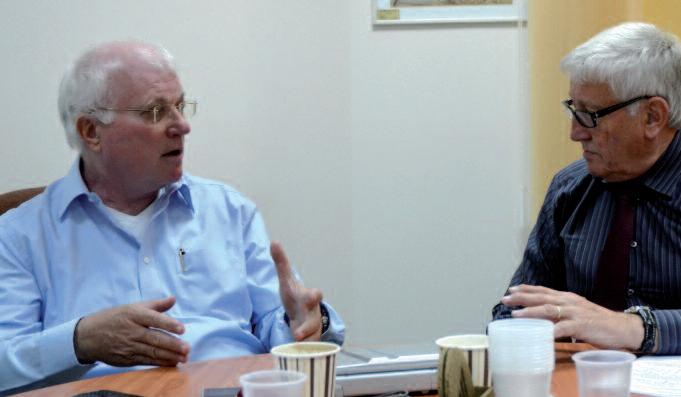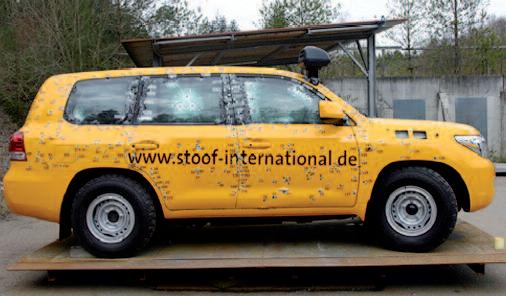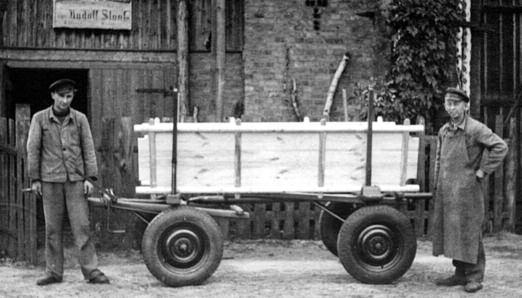
13 minute read
Abraham (Avi) Bachar, Tel Aviv
Without active participation of the society in crisis prevention, there will be no efficiently The Israeli approach to crisis and
consequences management
Interview with Abraham (Avi) Bachar, General (res.), CEO of Israteam, Tel Aviv
The European: General, you are a provider of security solutions to the Israeli government and you are international consultant. Mr Bachar: I would not say “security solutions”, just because we are not a security company.
The European: And what then is the nature of your enterprise? Mr Bachar: In Israel there are about 250 security companies, but there is only one, our company, dealing with crisis management. So I prefer to say that I am an international consultant for “crisis and consequence management”
The European: Do you make the distinction because you differentiate between the nature and/or the quality of crises? Mr Bachar: When we talk about the crisis management in terms of terrorist attacks, I am a provider of a segment on the security solutions. But if we are talking about crisis management in disasters such as earthquakes, in these cases I have nothing to do with security.
The European: So you are a solution provides and aware of the great effort necessary to organize crisis prevention in the EU so as to make it an important global partner in providing humanitarian aid. What is here to learn from Israel? Mr Bachar: When I am teaching how to create crisis response plans, I say that the first thing to understand is the threat. The major difference with Europe is just the nature of the threat. The Israeli people are under threats from all directions − war, terror, earthquakes, pandemics etc. In my opinion, the European governments haven’t realized yet the threats from the Islamic fundamentalism.
The European: And everything might happen at the same time. Mr Bachar: This should make us more aware and more pre pa - red, otherwise we will not exist as a nation. When European so cieties understand that they have a threat, believe me, they would do what is necessary, but governments and the EU Institutions have to define and redefine that threat.
The European: Without the participation of society, there will be no efficiency. But how do you prepare for all threats? Mr Bachar: When I start to work on preparedness of a country or organisation for a crisis, I always ask the decision makers to what extent they will be able to get public participation in the system they intend to build.
Abraham (Avi) Bachar Abraham (Avi) Bachar, Brigadier General (res.) is the CEO of ISRATEAM 98 Ltd since 1998, after retiring from the Army where he held the position of the Chief of Staff, IDF Home Front Command from 1995 to 1998. Avi Bachar holds a MA in Public Policy (Tel-Aviv University) and in Political Science (Haifa University) and he is graduated of the National Security College. He was from 2007 to 2009 Chairman of the National Emergency Energy Organization.
The European: For what purpose? Mr Bachar: Because no nation in the world has enough re sour - ces nor has enough power to deal with a large-scale crisis. You have to have participation of the population just at the be - ginning, because designated units need time to understand the situation and to arrive at the scene. From our experience, we learned that the first minutes are the most important for saving lives!!
The European: So you use the population to provide first assistance before specialists and respective units or elements arrive. How exactly do you employ the population? Mr Bachar: By making people know and understand the nature of the threats, training them for a first intervention, and giving them necessary equipment such as gas masks. So they will be able to give the very first aid to the casualties in the event and if necessary to get them out of the hot zone.
The European: Let me take up the issue of CBRN, as you just mentioned gas masks. The Europeans have re-considered this field and are preparing against CBRN threats. Mr Bachar: Yes, I’ve heard about it. The European Parliament is rather active, which is somewhat understandable. Even if a direct military threat to Europe is missing, there are other threats such as terrorist attacks, which will remain active for some time. The European: Let us come to your practice. When you have developed a strategy for a customer and are going to implement it, how long will it take to field the necessary material and human resources? Mr Bachar: That is a difficult question to answer, but it usually
takes years to understand and prepare everything. And as you know, the level of preparedness is a never-ending process.
The European: Is Israel well-prepared for all types of crises? Mr Bachar: Are we well-prepared? Certainly we are doing our best, but this is a never-ending story. One thing is clear: You never can say you are ready. You always have to improve yourself and your allies.
The European: What does this mean in reality? Mr Bachar: We are well-prepared, but not well enough. Believe me, we are not prepared well enough for war, and especially not for the next war, because we always prepare for “the last war”. We are not prepared almost at all for earthquakes; we know what should be done, but we are far from accomplishing it.
The European: Because it takes a lot of resources and the country has other priorities? Mr Bachar: You need resources for other things as well, such as education and health. So, one of the biggest difficulties is deciding on the policy. What are the threats we are going to deal with? Once you have defined the threats, you also have consequently to allocate the resources. It is very important to realize this limitation on preparedness. You have to realize that you will never be prepared for everything.
The European: May I concentrate on CBRN prevention and countermeasures. What is your strategy after the first elements of “population” have intervened? Do you have CBRN-stocks centralized, or do you have them located everywhere? What is the delay “lead time” for intervention? Mr Bachar: Everyone uses the catchword CBRN, and some are adding an “E” for Explosives. Nothing against this catchword, but it leads to grave misunderstandings. For me it is a big mistake to put those different things all together in one basket, whereas each issue has its own nature and significance.
The European: Why? Could you explain? Mr Bachar: Chemical events − for example − will begin and end within very short time. Because the chemical is in the air (if it is not in an enclosed space) and if there is some wind, it will dissipate in a few minutes. If you don’t react immediately in minutes, you have no chance to save lives. We call it the “golden hour” because a reaction to a chemical event may depend on the first 10 or 20 minutes, and consequently you have to store all material locally. For a B-event, you have to prepare otherwise.
The European: Let us talk about that. Mr Bachar: For a biological event, the preparation is very different. In such an event you will know that the event has occurred, only three or more days later when symthoms starts to occur producing effects / At that time, you engage mostly the Emergency Medical Services (EMS) and the hospitals. Then you have to call for specialists prepared for a biological event for pandemic investigation, as opposed to the generally prepared first responders.
The European: That must also mean that the doctrines are very differently organized for B-events, C-events, etc. Mr Bachar: That’s right. For a biological event, you can have a centralised stockpile and centralised units because you have about 24 hours to come into the area, distribute medicine, and deploy part of the population, as you need a lot of man power. Only the army can normally do this. Much personnel is requi - red, but the material alone can be transported in a single 5-ton truck. In short, tell me what is the threat you want to deal with

General (res.) Bachar during the interview in the office of Israteam in Tel Aviv (left). Avi Bachar and Hartmut Bühl at the Rabbin Memorial in Tel Aviv (right). Photos: H. Bühl
52 and I will tell you how to build your response, but don’t mix up the threats.
The European: What about nuclear events, which is another totally different field? Mr Bachar: That was proven through Fukushima. I sent a dele - gation to there and did my observations.
The European: Then let us speak about Fukushima. You already mentioned the “golden hour”. For me, the question is how much you jeopardise the health of the first responders to make them operationally capable of saving other lives. Mr Bachar: The Fukushima situation was that we saw the power plant releasing radiation and workers trying to prevent a major disaster by jeopardising their lives while working there for about a month without fully protective equipment just because there is not any fully protective gear for all kinds of radiation, which enaables the first responder to still accomplish its mission.
“tell me what is the threat you want to deal with and I will tell you how to build your response, but don’t mix up the threats”.
The European: It is just that which I want to understand. Similar to other technologies, if you want to put somebody in a top-level suit to be fully protected, it might be that he is safe, but simply too late to get in action. But that is one philosophy. Is there a strategy in Israel regarding the level of protection that is provided and the operational capability resulting from that? Mr Bachar: That is a vital question. I have started to talk about new level of response. Usually, we talk about the “first responders“ acting the first.
The European: What does it mean new level of response? Mr Bachar: I started to talk about what I call the “first liners”. What I mean is that in every institution or in each community, you have to have some people which are better equipped and have better knowledge of how to deal with the event, They will give the real first aid to the population in the event, just because the “first responders” will almost always be too late.
The European: Could you give an example for “C”? Mr Bachar: Take a chemical event in an airport. You know that most airlines in the world look to protecting the flight, but no one pays attention to the airport itself. There are a lot of people at an airport in a very small space. Someone could smash a bottle of Sarin and cause hundreds of deaths within a few minutes without even having to get on the aeroplane. The European: There are a lot of security and other employees on the airport. Would you give them a special role? Mr Bachar: Everyone of them should have what we call “escape plans”, like the “security” plan at the Guard.
The European: And what will the security people a chemical event? Mr Bachar: Oh, indeed, they prefer to run away, and as the security people are much faster than the population in the airport, they will run away leaving most of the population behind to die.
The European: And so you came up with the “first liners”? Mr Bachar: The idea is to give the “first liners” some kind of protection. I underline that they are not first responders. Consequently, e.g. every policeman in the airport takes with him his gas mask, which normally remains in the car.
The European: Because nobody likes to carry it. Mr Bachar: Yes, that is why we need to equip them with a very small “pocket gas mask” to use for ten minutes just to see what is going on and to get out, calling headquarters for support and then acting on site. Sometimes you can help or save people just by telling them what to do.
The European: And how are hospitals prepared to deal with mass casualties? Mr Bachar: In Israel, every hospital has to be prepared for mass casualty events and we have measures for what should be done in the hospital for coping with “C” ,”B”, ”R”, “N” or“E”,. We have two exercises per year, and thus in two years we have had four exercises: war, chemical, toxicological and one surprise drill.
The European: What is toxicological? Mr Bachar: This concerns war, during which there could be combined events: biological, chemical and high-explosive.
The European: All your planning seems to be a comprehensive approach where military and civil security is a unity. Mr Bachar: This is different from European thinking, where the EU societies see always a problem in mixing the mi li tary and civil. The civil side has a certain fear of the military The EU is on its own comprehensive approach nor and believe me, that. But the future is comprehensive and both communities have to learn how to behave and collaborate without animosities.
The European: Could you give some advice? Mr Bachar: Take what the EU Commissioner Georgieva has mentioned in the interview with The European in the last edition of your magazin on pp 12
125 Years of Automobiles − from the Coach to the Armoured Vehicle
In 1865, Mr. Karl August Stoof began to manufacture coaches in Kanin, a town in Brandenburg, Germany. This lead to the family enterprise STOOF-International. The engagement with frameand-body construction went on until 1989, when STOOF transformed into a leading international company constructing armoured vehicles. STOOF Family Enterprise stands for the ideals and traditional values that are the key elements of the high quality of German engineering. Let us take a short glance back into the history of automobiles.
History In 1886, Mr. Carl Benz registered his patent for the Motorcar No 1. This was the beginning of automobile development in Germany. In 1888, Mrs. Berta Benz drove the Motorcar No 3 for a 106 km long ride from Mannheim to Pforzheim. Only three days later, she drove back and caused immense attention as a lady driving an automobile: thus she reinforced her husband’s economic success. This first Motorcar ride was not only a success for the Benz company; at the same time it was the spark for all automobile manufacturers.
STOOF-International today
Today STOOF-International, with all company branches, is lo -
cated in Borkheide (Brandenburg, Germany). The company
comprises of Research, Development and Construction depart
ments. In addition, a 25.000 m 2
test track is available for dri -
vers training under high standards of protection. All elements of the utmost security standards are thus concentrated in Bork - heide. Nearly 150 years of experience with vehicle construction and manufacturing have lead to the highest competence and perfection. Highly individual counselling and mentoring ensures custo merorientated special security concepts. The versatile range of STOOF-International products comprises custom-made items such as armoured luxury vehicles, TROJAN® armoured Toyota Land Cruisers, armoured 4 x 4 vehicles, armoured lorries, mo - neyboxes, sally ports, security containers, as well as armoured vehicles for the police and military.
The priority of customer wishes STOOF-International combines trademark vehicles with the individual wishes of customers to manufacture high-class and certified armoured vehicles. Each individual customer wish is documented in a three-dimensional computer layout. Manufacturing of vehicles will not start until the customer is satisfied with the computer animation.
Build-up and certification The trademark vehicles are completely dismantled prior to their reconstruction with special parts and armour. From the planning stage until the finishing of the final product, everything lies in the hands of STOOF-International. The armoured and certified cross-country vehicles, such as the Toyota TROJAN® VR6, are entirely constructed with certified armoured materials.
Shelling tests The Toyota TROJAN® VR6 went through a very tough shelling test involving a broad variety of calibres. The test was passed successfully during the first trail. Other experiments, with a 15 kg TNT charge at a distance of two meters and with a DM 31 (anti-personal-mine) underneath the vehicle, showed no mine splinters or other negative impact in the vehicle’s interior. Following these very impressive tests, STOF-International has proven to be a security expert constructing armoured vehicles. National and international customers as well as large organisations (GOs and NGOs) around the world rely on the competence of STOOF-International.
Hans Peter Buch
Photo:Fred Stoof Photo: STOOF International GmbH












